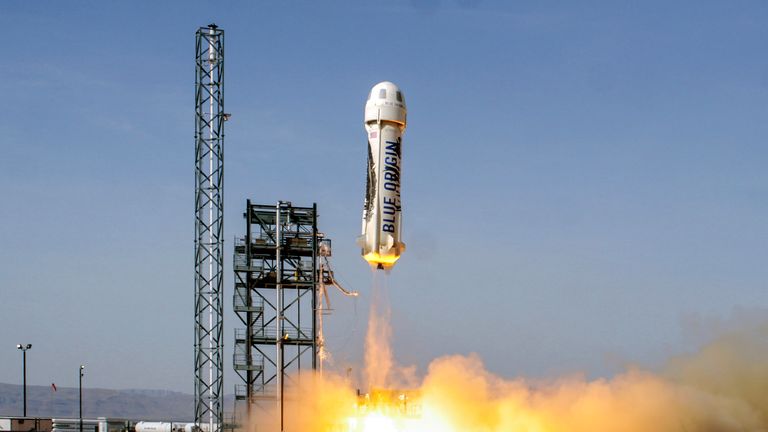Mention the names Richard Branson, Jeff Bezos, and Elon Musk, and you not only have three of the wealthiest moguls on Earth. They are also three visionaries who are spearheading the race to bring commercial flight to space.
Branson stole a march on Bezos by jetting off the planet aboard Virgin Galactic’s supersonic space plane last Monday, July 12th. The latter is slated to fly on Tuesday on board his pet project, the New Shepard.
While Elon Musk’s SpaceX initiative has already sent up a number of flights, the Tesla founder himself has yet to take to the skies. But all things considered: what do ordinary people stand to gain from these moguls’ forays into space?
Indeed, the question has been spurred by the criticism of thought leaders like US senator Bernie Sanders who feel that the current space race feels more like an ego-booster fest and a mad grab for plush government contracts. However, the history of space exploration has shown how humankind has benefited from numerous technological breakthroughs that came about thanks to related research.
Solar panels for generating energy are one particular benefit, as are infrared technologies such as those used for new-generation thermometers, which accurately gauge one’s temperature in seconds.
Medical marvels and more
Companies developed new-generation artificial limbs and surgical robotics based on technologies originally created for use in space. The NeuroArm, a surgical robot designed for delicate brain surgery, is one such device. It is, essentially, a riff on the Canadarm and the Canadarm2, robotic maintenance equipment used respectively aboard a space shuttle and the International Space Station.
But space travel-derived tech goes beyond hospitals and clinics. The bestselling Nike Air sneaker, for example, features cushioning inspired by the protective padding and insulation of early and mid-era space suits. Likewise, water purification is now possible to do without the use of chlorine, and this is thanks to purification systems used in various space flights.
Even things we take for granted, like the automatic gauges for air pressure in car tires or the global positioning systems (GPS) we use to navigate, are based on space tech.
But where do we go from here?
Critics will be quick to say that the creation of the items previously mentioned resulted from government-funded space exploration. In which case, what good will the current space race do aside from making already wealthy moguls even richer?
Musk’s SpaceX was created to find an alternative home for humanity in light of climate change. When the company was founded in 2002, Musk’s long-term goal was to eventually colonize Mars. Since then, however, the initiative has been credited with the development of reusable spacecraft – a revolutionary thing that has dropped the cost of a space launch from $60 million to a mere $6 million.
Beyond that, however, Musk has expressed hope that his work with SpaceX would enable scientists to explore the very fringes of the universe and, in doing so, learn more about the origins of life itself.
While many would look upon the current space race as nothing more than a frivolous way to get the public’s attention, the possibility that these flights can lead to other technological developments that will eventually benefit humanity is something worth looking forward to.















